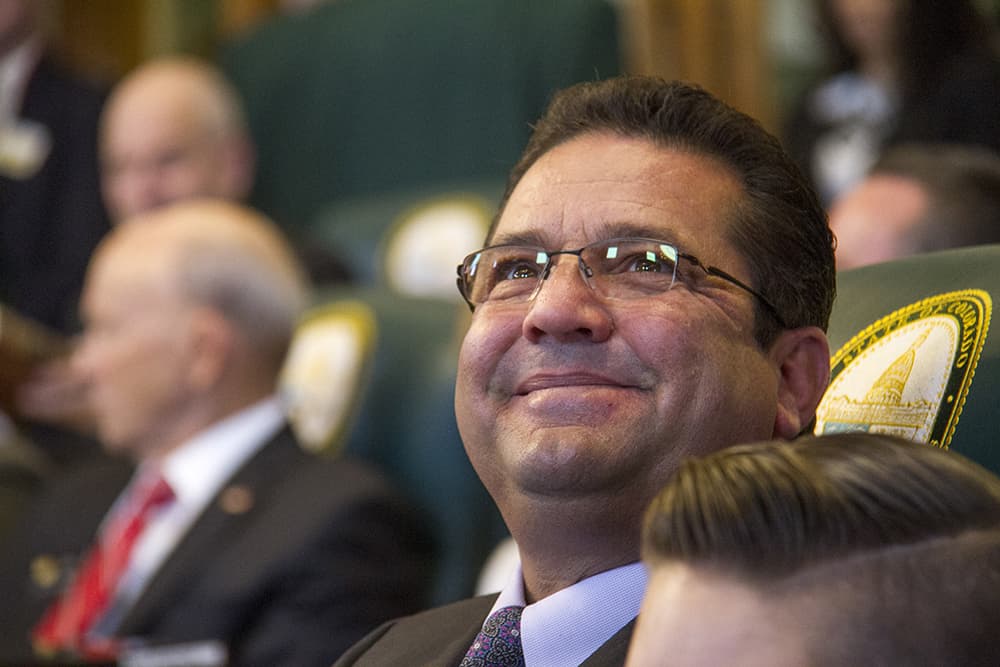State Rep. Phil Covarrubias, a Brighton Republican, defended the policy of sending Japanese-American people to concentration camps during World War II during debate Wednesday about the Ralph Carr Freedom Defense Act.
This bill would prohibit Colorado from helping the federal government create ethnically and religiously based registries or internment camps and from providing information about the immigration status of any Colorado resident unless it was “for a legal and constitutional purpose." It's named after the Republican governor of Colorado who opposed Japanese internment.
"We keep hearing about how things went down with the Japanese people," he said. "For anybody that has never been in the heat of combat, when the Japanese attacked Pearl Harbor and all of that was going on, there's no time to ask questions and find out who's a citizen and who's not. You don't have that moment in time. You need to regroup. It's easy to sit up here and say this stuff now. If you're in that moment, it looks a lot different than being able to be in a nice suit and tie."
Pearl Harbor was attacked by the Japanese on Dec. 7, 1941, and Executive Order 9066, which excluded Japanese and Japanese-Americans from the West Coast of the United States, was signed on Feb. 19, 1942, more than two months later. The actual process of rounding people up and sending them to camps in the interior of the country, including in Camp Amache in Colorado, took many more months.
The vast majority of the 157,000 people of Japanese descent living in Hawaii, where the Pearl Harbor attack occurred, were not put in camps. They made up one-third of the entire population of the islands and removing or imprisoning them would have been devastating to the economy.
The U.S. government formally apologized for Japanese internment in 1988 -- President Ronald Reagan signed the bill -- and paid compensation to the surviving victims.
The bill, which still needs one more vote in the House, is not likely to make it out of the Republican-controlled Senate. Most Republicans who opposed the bill focused more on its inclusion of undocumented immigrants in the categories of people who would be protected. Colorado law enforcement agencies already don't honor immigration detainers because they believe the practice of holding people who would otherwise be free to leave jail violates the Fourth Amendment, but the bill would formalize "sanctuary" policies without using that word.
As Colorado Politics reported, Republicans also sought to remove Carr's name from the bill because he defended citizens, not illegal immigrants. About two-thirds of the people who were interned were American citizens.
The liberal site Colorado Pols (totally unrelated to Colorado Politics) first highlighted Covarrubias' remarks and uploaded the YouTube video recorded from the state's official legislative channel.












